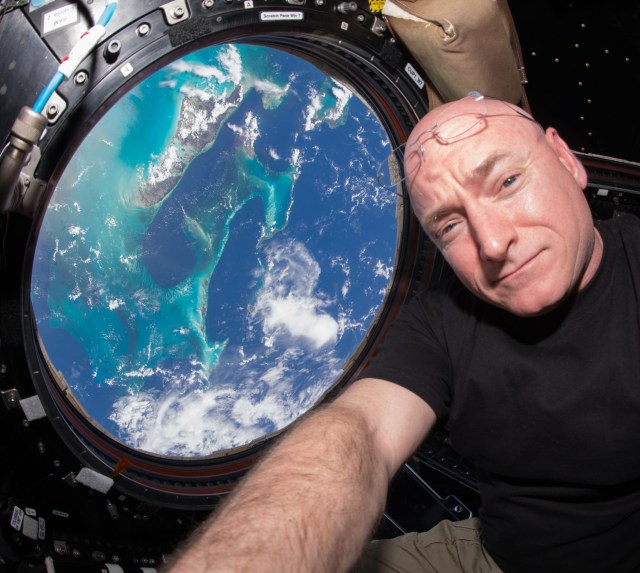
Ten research teams today shared comprehensive scientific results from an unprecedented experiment to gauge the health differences that developed between an astronaut who spent nearly a year in space and his identical twin down on Earth.
The study, published in the journal Science, traces the results of DNA tests and analyses of biological samples from Scott Kelly, who took on the 340-day mission on the International Space Station in 2015-2016; and from his brother Mark Kelly, a former astronaut who underwent parallel tests on Earth.
Many of the findings have been previously reported, but today’s open-access research paper and supporting materials provided broader context for the NASA Twins Study — and pointed to concerns that are likely to be addressed in future space experiments.





